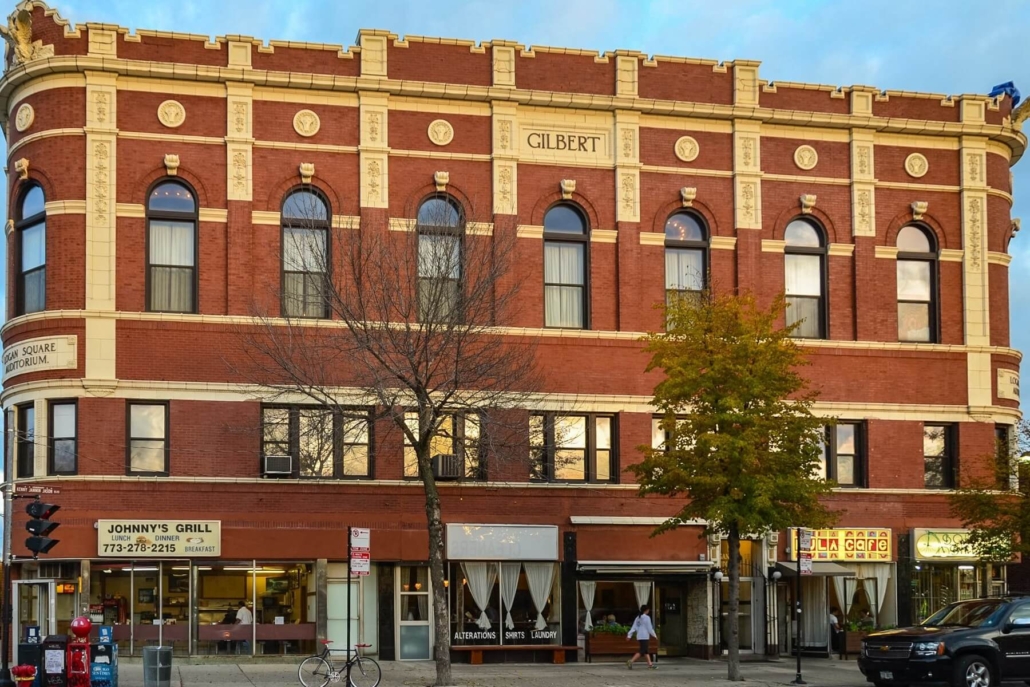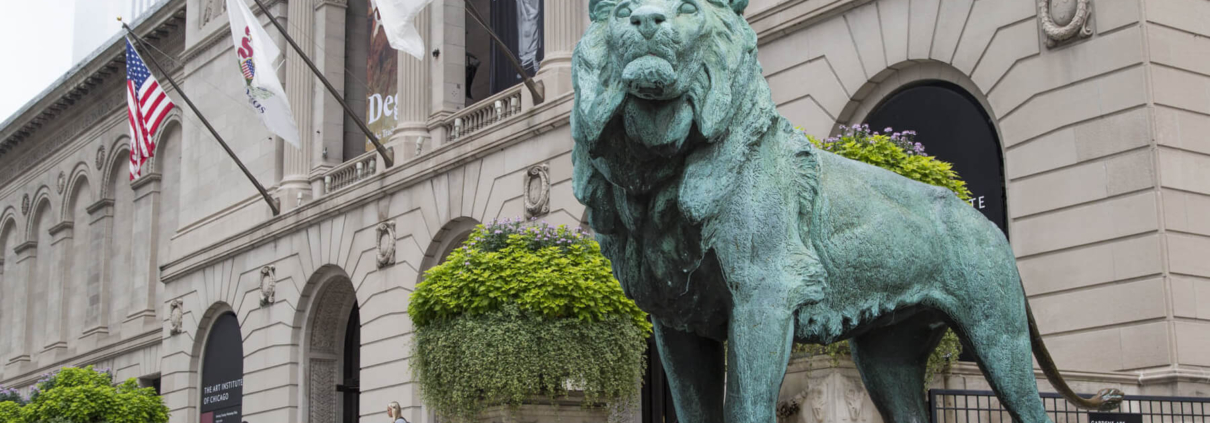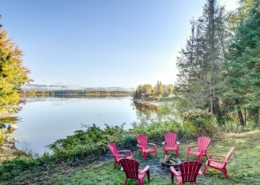The Myriad Advantages of Investing in Airbnb Properties in Chicago
Introduction
In the vibrant world of real estate investments, finding the perfect strategy that yields high returns is akin to striking gold. One such golden opportunity is investing in Airbnb properties, particularly in the bustling city of Chicago. But what makes this investment as mouthwatering as a Chicago-style hot dog? Discover the multitude of advantages of investing in Airbnb properties in Chicago. From its diverse real estate market and supportive legislation to high ROI prospects, Chicago offers a promising landscape for Airbnb investments. Explore the opportunities today!
The Rising Trend of Airbnb
Understanding Airbnb’s Global Influence
Airbnb, an acronym for Air Bed and Breakfast, is a revolutionary concept that has dramatically transformed the hospitality landscape. It’s like turning an ordinary loaf of bread into a delicious sandwich. Your idle property becomes a cozy retreat for travelers and simultaneously generates an impressive profit.
The Functioning of Airbnb
Fundamentally, Airbnb creates a platform for property owners to rent out their homes, apartments, or rooms to travelers. It’s like a bridge connecting hosts and guests, creating a mutually beneficial relationship.

The Attraction of Investing in Airbnb Properties
The Explosion of the Short-Term Rental Market
Airbnb, along with similar platforms, has set off a global surge in short-term rentals. There were 12.7 million listings worldwide in 2021. Remarkably, that’s equivalent to the population of a metropolitan area like Los Angeles in the United States or the Île-de-France region in France! And this figure is escalating daily, shaping the future of the hospitality and real estate sectors.
Potential for a Consistent Cash Flow
Investing in Airbnb can provide regular cash flow, often surpassing earnings from conventional long-term rentals. It’s like being the captain of your ship, setting the price, rules, and availability.
Tremendous Scope for Growth
With Airbnb users projected to surge to nearly half a billion by 2025, the growth potential is remarkable. It’s like sowing seeds in a fertile field, knowing the harvest will be bountiful.
Unveiling the Advantages of Airbnb Investments in Chicago
The Thriving Tourist Magnet of Chicago>
Chicago, with its awe-inspiring skyline, lively arts scene, and scrumptious culinary culture, draws in over 58 million tourists annually. Imagine, that’s more than the entire population of South Africa! This presents an excellent opportunity for Airbnb hosts.
Attractive ROI Prospects in the Windy City
The City of Broad Shoulders – Chicago, with its continual flow of tourists, offers enticing opportunities for Airbnb investors. The average occupancy rate for Airbnb properties in the city hovers around 67%. This is a higher rate than many other cities, indicating a strong demand for short-term rentals.
Here’s where it gets interesting: the Return on Investment (ROI). ROI is a key metric that investors use to measure the efficiency or profitability of an investment. In the context of Airbnb, a higher occupancy rate often translates into a higher ROI. This is because more bookings mean more income, and more income leads to a quicker recovery of your initial investment and subsequently, profit.
Investors should also note the importance of location in enhancing ROI. Properties located near popular tourist destinations or key transit hubs in Chicago can often command higher rental rates and maintain higher occupancy. Whether it’s a loft near the Navy Pier, a condo with a view of the Willis Tower, or an apartment a stone’s throw from the ‘L’ (Chicago’s rapid transit system), these properties can be gold mines.
This is because tourists often prioritize convenience and proximity to attractions when choosing their accommodation. A property near Millennium Park or the Art Institute of Chicago might fetch higher nightly rates than a similar property in a less central location. And of course, higher rental rates can lead to a higher ROI.
So, in a nutshell, the steady stream of tourists, favorable Airbnb occupancy rate, and strategic property location combine to offer Airbnb investors in Chicago substantial profit potential. It’s almost like finding a four-leaf clover in the world of real estate investment!

A Legislation that Encourages Airbnb
- Chicago Airbnb laws and Statistics: read more about Airbnb regulation
- The Evolving Landscape: Regulation of Airbnb in the City of Chicago
- The Comprehensive Handbook on Taxation for Airbnb Income in Chicago
The city of Chicago has been a forerunner in setting legislation that allows and regulates short-term rentals, including Airbnb. This progressive approach creates a conducive environment for Airbnb investments, attracting investors from all corners.
Under the Shared Housing Ordinance of the city, short-term rentals are legal. However, they come with certain stipulations. First, all Airbnb hosts are required to register with the city on Chicago Shared Housing Registration Portal and obtain a license. (Read more about Shared Housing Registration and Accommodations Licensing.) This means that you are operating within the legal framework, and it provides a level of assurance for both hosts and guests.
The ordinance also includes rules for homeowners associations (HOAs) and landlords. It stipulates that HOAs and landlords can prohibit or limit short-term rentals within their buildings or communities. So, before investing in a property for Airbnb, it’s important to check whether such restrictions exist.
Additionally, the city has regulations on listing requirements, including the need for hosts to post their city-issued registration number in their listing. This ensures transparency and regulatory compliance.
Furthermore, Chicago legislation mandates that platforms like Airbnb share data with the city and remove listings that violate the ordinance. This cooperation between the city and the platform creates an environment that is generally supportive and safe for short-term rental activities.
The city also collects a surcharge on short-term rentals, which is used to fund services for the homeless, making your investment not just profitable but also contributing to a social cause.
However, laws and regulations can and do change. It’s essential for any investor to stay abreast of any updates to local laws and regulations to avoid potential hurdles and ensure the continued success of their investment. Consulting with a legal expert or a real estate professional with experience in Chicago’s short-term rental market can be extremely beneficial in navigating these legal waters.
A Thriving Real Estate Market
Chicago’s real estate market, comprised of approximately 1.2 million housing units, is as dynamic and varied as its cultural backdrop. This opens up an extensive array of opportunities for potential Airbnb hosts. Whether your budget allows for a small investment or a larger one, there’s something to cater to every investor.
Consider the luxury end of the market, where a high-rise condo in downtown Chicago could cost upwards of $1 million. These properties, offering sweeping views of Lake Michigan, are highly sought after by tourists seeking a luxurious experience. The median price for a condo in areas like the Near North Side, known for its upscale properties, was about $440,000 in 2021.
For a more urban and modern aesthetic, neighborhoods like River North and West Loop offer contemporary lofts ranging in the mid $300,000s and upwards. These areas, recognized for their proximity to art galleries, trendy eateries, and buzzing nightlife, are a hit among younger tourists and business travelers.
If historic charm is more your style, you can find properties in neighborhoods like Hyde Park or Logan Square. These areas offer charming brownstones and greystones ranging from around $500,000 to over a million dollars, depending on the property size and condition.
Chicago is also renowned for its education institutions, hosting over 20 major universities and colleges. Investment properties in areas like Lincoln Park or Hyde Park, which house DePaul University and the University of Chicago respectively, can fetch anywhere between $200,000 to over $1 million.
Lastly, it’s worth mentioning that despite periodic fluctuations in the economy, Chicago’s property market has shown commendable resilience. In the decade leading up to 2021, the city’s home values have seen steady growth of approximately 3% annually. It’s worth mentioning that in April 2023, the median price stood at $320,000.
In essence, whether your investment vision involves a high-end condo, a modern loft, or a historic townhouse, Chicago’s thriving real estate market can cater to all. With property prices spanning from the low $200,000s to several millions, there are options to match various investment capacities. The market diversity in the Windy City is indeed a testament to the adage, ‘there’s something for everyone’.

Kick-starting Your Airbnb Investment Journey in Chicago
1. Making the Right Property Choice
The location and appeal of your property can be a game-changer in Airbnb investment. Therefore, choose a property in a high-demand area that caters to the needs of your potential guests.
2. Getting to Grips with Chicago’s Airbnb Regulations
Understanding the rules of the game is essential before you start playing. Similarly, understanding the regulations surrounding Airbnb in Chicago is a prerequisite before stepping into this investment arena.
3. Crafting an Inviting Airbnb Listing
Your Airbnb listing is the first impression you make on potential guests. So, create a compelling listing that showcases the unique aspects of your property, complete with high-quality photos and a detailed description.
Conclusion
Investing in Airbnb properties in Chicago presents a plethora of benefits that traditional real estate investments might not offer. Given the city’s thriving tourism industry, favorable legislation, and the global rise of Airbnb, it seems the time is ripe to tap into this golden opportunity.
Explore:


















